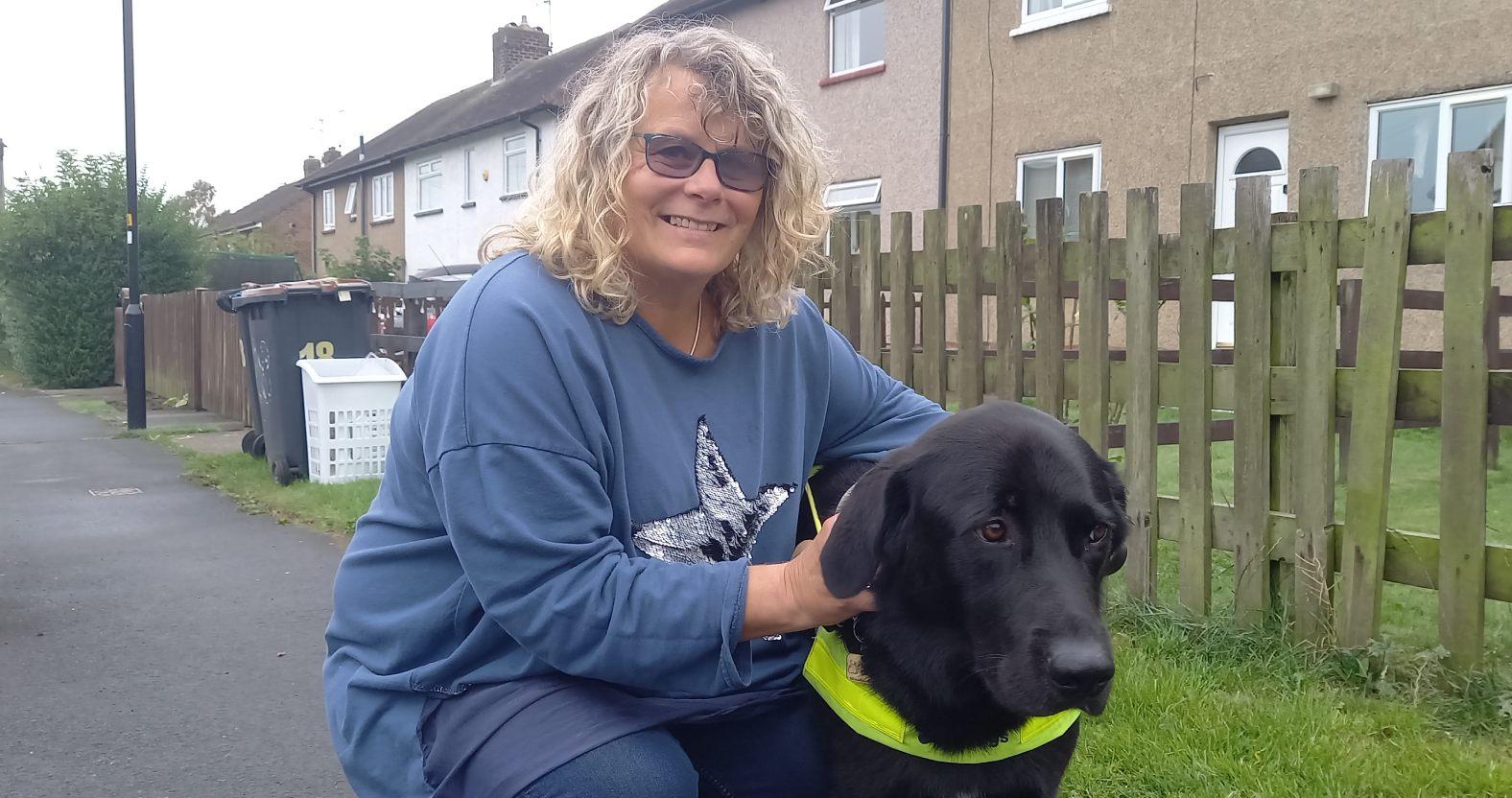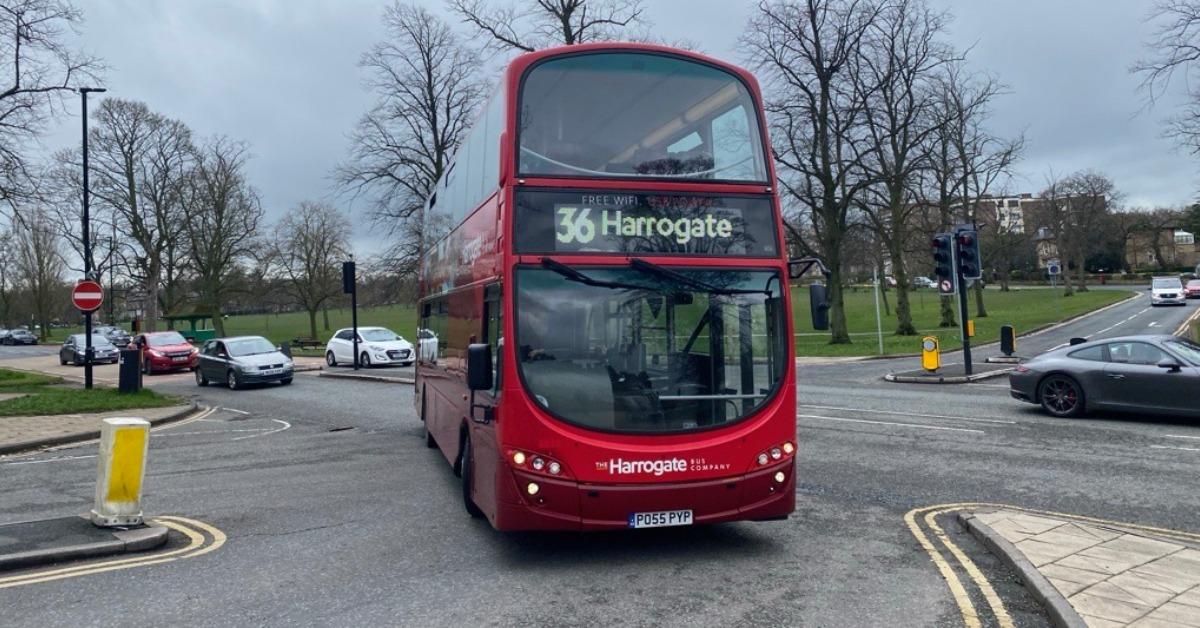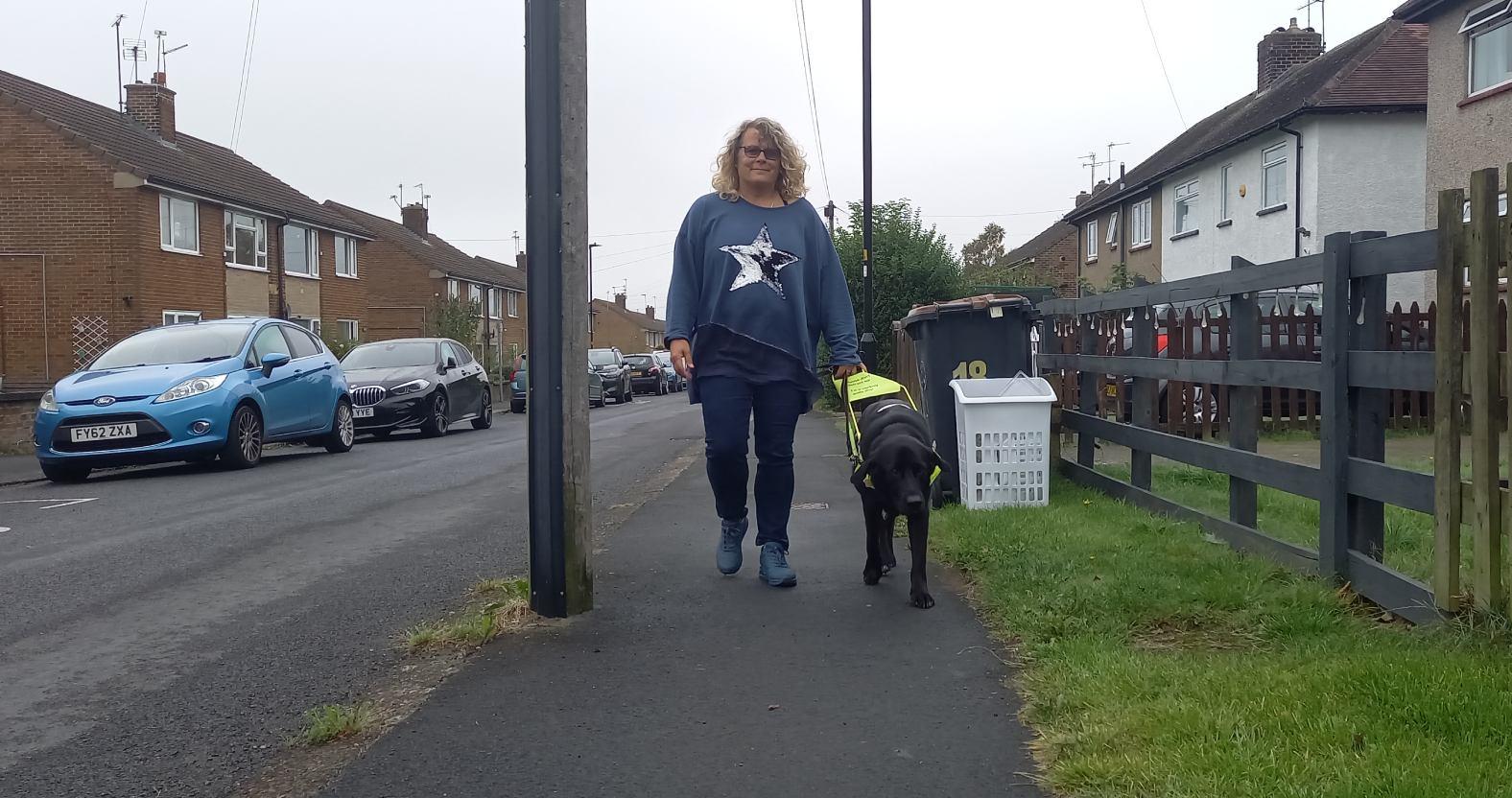Subscribe to trusted local news
In a time of both misinformation and too much information, quality journalism is more crucial than ever. By subscribing, you can help us get the story right.
- Subscription costs less than £1 a week with an annual plan.
Already a subscriber? Log in here.
04
Sept 2024
Restaurants regularly turn me away, even though it's illegal, says guide dog owner

The case we reported last week of a Harrogate woman refused service at a food outlet because of her guide dog may have been shocking, but it was far from rare.
When the Guide Dogs for the Blind Association – commonly known as Guide Dogs – surveyed guide dog owners in 2022, it found that 81% had been refused access to a shop, restaurant or form of transport.
Helen McGrath, who was refused service in the Harrogate branch of McDonalds last week, told the Stray Ferret:
I’ve been refused service all over the place – it's a regular occurrence – and I’ve been questioned at the entrance to a lot of places in Harrogate.
In fact, refusing to serve people with guide dogs has effectively been illegal for nearly 30 years. The most recent relevant legislation, the Equality Act 2010, explicitly prohibits service providers such as taxis and restaurants from discriminating against people with assistance dogs. It also requires service providers to make “reasonable adjustments” for customers with disabilities including sight loss.
According to the Guide Dogs survey, the majority of guide dog owners say that access refusals make them feel “discriminated against”, “unsafe” and “rejected”.

Busy bus services can be difficult environments for guide dogs - and their owners.
Those feelings are not ones that Helen has grown used to, or probably ever will. Ten years ago, she had good vision, drove a car and, having earned two degrees, in business IT and criminology, worked as a special needs teaching assistant in Harrogate.
But a series of strokes, two in 2014 and a third in 2020, left her with bilateral hemianopia, and as a result she has lost 95% of her sight and now has just a small pocket of vision at the top of her right eye.
She lost her job as soon as she lost her vision, but now works two days a week as an eye clinic liaison officer (ECLO), a role funded by local charity Vision Support, and spends one morning a week at Harrogate District Hospital supporting patients who are losing their sight. She also volunteers for one day a week at Vision Support.
She once again leads a full and active life, albeit very different from the one she was used to, and this is made possible by her guide dog, Burley. The impeccably trained black German shepherd-retriever cross takes her wherever she wants to go, safely and with confidence.
Helen said:
The first time I went to work at the hospital, I kept telling Burley where we were going, using the word ‘hospital’ a lot. The next time we went, I just asked him to take me to the hospital and he did. He’s amazing.

The local economy affects everyone.
It’s no exaggeration to say that for Helen, life without Burley would be unthinkable, yet even with him by her side, there are plenty of barriers to access that she has to negotiate.
She said:
Parts of Harrogate have become very tricky, with uneven pavements and lots of street furniture. Cambridge Street and Beulah Street are particularly bad.
Overhanging hedges are a nightmare, and wheelie bins can be a nuisance on some routes.
A lot of cafés now have chairs and tables outside, as well as A-boards, and owners often don’t allow enough space for people to get through, and it’s not just a problem for guide dog owners – people pushing buggies and using electric wheelchairs have problems too.
Bus travel on busy routes can be difficult, and although most buses now have audio to tell you which stop you’ve arrived at, some drivers switch it off, which is very unhelpful!
There are also always people on the bus wanting to make a fuss of Burley. Please stop – he's working! The golden rule is: harness on, hands off.
But Helen says that of all the problems she encounters getting about, taxi and restaurant refusals are the worst. She said:
They’re so personal and humiliating. To be stood at the door and told you’re not allowed to go in is very embarrassing – not just for the guide dog user, but also for the people they may be with.

Helen McGrath with Burley
Prior to this year’s general election, Guide Dogs issued its 'manifesto', which included a demand that the government strengthen the law to stop incidents like Helen’s in McDonalds from happening, and to ensure that staff know the legal rights of guide dog owners.
It was the latest in a long history of attempts to improve access for guide dog owners across services in the UK.
The charity's 2022 survey was carried out in support of its ongoing Open Doors campaign, and as long ago as 2001, the organisation surveyed 500 pubs and restaurants around the country and found that one in eight would not serve people with guide dogs. According to Helen, the message needs repeating regularly. She said:
It’s just a case of raising awareness. In this day and age, there’s no reason why a restaurant or any other business should refuse service to someone with a guide dog.
But we seem to have a generation who aren’t aware, and don’t realise that people like me can continue to lead full, purposeful lives with just a few adaptations.
1